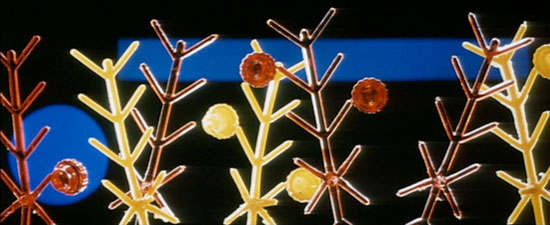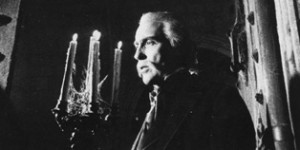Written to introduce a dossier in Farsi on Alain Resnais prepared by Ehsan Khoshbakht in March 2012. — J.R.




Alain Resnais is clearly one of our greatest living filmmakers. But he’s also one of the most elusive, for a number of reasons. He started out as the most international of all the French New Wave artists, at least in his early features (especially Hiroshima mon amour,Last Year at Marienbad, La Guerre est finie,Je t’aime, je t’aime, and Providence), but then went on to become the most French of French directors (not only in obvious cases such as Mon oncle d’Amérique, Stavisky…, Mélo, Same Old Song, Not on the Lips, and Wild Grass, but even in films derived from English or partially American sources, such as I Want To Go Home, Smoking, No Smoking, and Private Fears in Public Places). Even before he got around to making features, he made by far the greatest films in the history of cinema about racism and colonialism (Statues Also Die), the Holocaust (Night and Fog), plastic (La Chant du Styrène), and libraries (Tout la mémoire du monde).Among Read more
Commissioned by Stanley Schtinter in the summer of 2019 for the limited LP release of Carles Santos’ soundtrack score for Pere Portabella’s Vampir Cuadecuc in early 2020. I received a copy of this LP from Stanley earlier that month — on the final day of a Portabella retrospective in London that began in November, when I gave a lecture at Close-up and Portabella himself, who’d just turned 93, was amiably present. — J.R.

Masterpieces have many possible ports of entry. My own passport into Pere Portabella’s Vampir Cuadecuc (1970) — first seen multiple times at the Directors’ Fortnight in Cannes in 1971 and then celebrated in my festival coverage for the Village Voice — was composed of rampant cinephilia crossed with political ignorance, as well as a fascination with William S. Burroughs’ use of cut-ups in Naked Lunch (1959), The Soft Machine (1961-1966), and The Ticket That Exploded (1962-1967) to create scrambled syntax (echoed in Portabella’s capacity to shift his narrative focus within single shots from the Dracula story itself to the filming of it). I knew then that Portabella, one of the Spanish producers of Luis Buñuel’s Viridiana, had his own passport confiscated as punishment by Francoist Spain, accounting for his absence in Cannes, and that his film was mostly a silent documentary of the shooting of an adaptation of Bram Stoker’s Dracula by one Jesus Franco, accompanied by musique concrète. Read more





